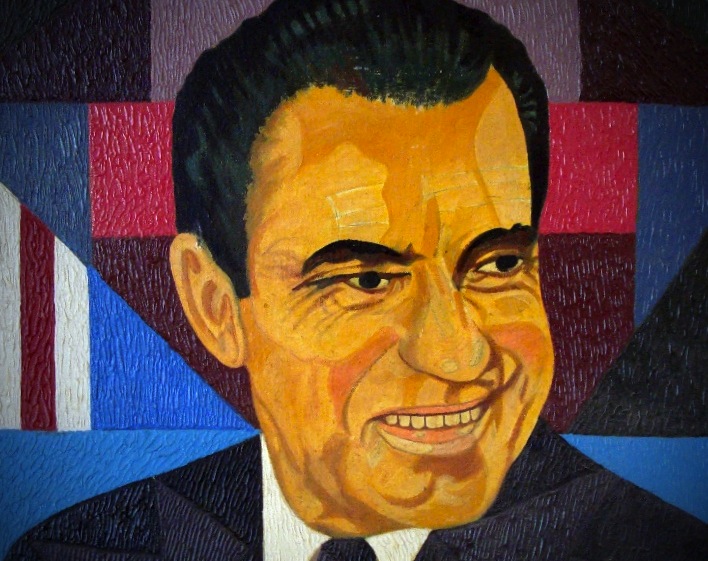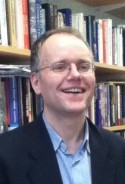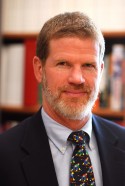
If you care about Richard Nixon, you probably have an opinion about him. It may be an informed opinion or an uninformed opinion. Either way, it’s going to be an incomplete opinion. Every person—especially of the complex, history-making sort—has more facets of personality and character than any biographer, let alone the broader public, could possibly assess in full. But we can remind one another of what we’ve been missing. In that spirit, and in advance of the Zócalo event “Is It Time to Rethink Nixon?“, we asked some historians to illuminate something we’ve misunderstood or forgotten about our controversial 37th president, Richard Nixon. What have we been missing?

No Republican of his generation developed a more intimate knowledge of the party than Richard Nixon—the result of an obsession with political strategizing and a dutiful commitment to the GOP’s rubber-chicken circuit. Yet on the crucial question of how to achieve victory at the polls he viewed his fellow Republicans as wrongheaded, shortsighted. Nixon was probably his era’s archetypal Republican, but this iconoclastic rejection of contemporary Republican assumptions also identified him as atypical—almost a dissident, even.
During the post-World War II period when New Deal liberalism still buoyed a powerful Democratic coalition, disagreements among Republicans on electoral strategy revolved around whether to offer a moderate or a conservative alternative to the Democratic agenda. Nixon disagreed with the very premise of the debate. Taking an approach to the Democratic agenda allowed Democrats to set the agenda—focusing issues on which a majority of Americans, quite inescapably, preferred the Democrats. The route to victory, according to Nixon, avoided discussion of New Deal liberalism. It was necessary instead to identify some other issue, and then to go on the attack.
This insight caused Nixon to view other Republicans with some contempt. For Nixon, any campaign-time challenge to big government was foolhardy. It is an insight that explains the path he followed, often controversially, during his career in electoral politics. Anticommunism was his first focus of attack on Democratic rivals. Then in 1960 he believed that victory against Kennedy was possible via a stress on foreign policy—and an evasion of domestic questions. Eight years later, the problems of Vietnam, civil rights, and crime provided a stronger foundation for attacks on the incumbent Democrats.
In the White House, Nixon concluded that the turbulence of the 1960s had created a historic opportunity to revitalize the Republican Party. He immersed his administration in a project to build a new majority. The formula for party growth that he devised—idiosyncratically mixing reform-minded aspects with conservative elements—was not one that fellow Republicans wholeheartedly embraced. When the project failed to score gains in sub-presidential contests, Nixon privately blamed other Republican candidates for that failure. Nixon thus remained a Republican at odds with his party.
Robert Mason is Senior Lecturer in History at the University of Edinburgh. He is the author of Richard Nixon and the Quest for a New Majority (2004) and The Republican Party and American Politics from Hoover to Reagan (2012). With Iwan Morgan, he is coeditor of Seeking a New Majority: The Republican Party and American Politics, 1960–1980 (2013).

As the bones of one widely reviled but perhaps misunderstood King Richard III are being disinterred from a parking lot in the English Midlands, stimulating new questions about his grim reputation, we on this side of the Atlantic may benefit from some reconsideration of our own “King Richard,” as critics of President Nixon often called him. The moniker derived from Richard Nixon’s obsession with politics and power—and his fierce desire to concentrate the latter in his White House and wield it against the opponents he famously placed on his “enemies list.”
Nixon was a practical man, even by the standards of politicians. In the pursuit of political office and power, his positions could—to use a popular contemporary term—evolve. The Republican liberal as vice president in the Eisenhower administration (and honorary NAACP member) used a “Southern strategy” a decade later to appeal directly to white Southern voters who opposed civil rights advances. The anticommunist crusader of the early Cold War went to Beijing and Moscow in the 1970s. The leader of the “Silent Majority” and promoter of “law and order” governed, in many ways, as the last liberal president in the Keynesian, New Deal sense. He cared little about domestic policy but a great deal about foreign affairs.
But what we might best remember about Richard Nixon is that he turned Americans’ world upside down in the early 1970s. He did this at home by undercutting citizens’ trust in their leaders. Before the Watergate scandal, Americans still tended to have faith in their political authorities and the political system. Since then, they have never fully recovered. And he did this abroad by undercutting the Cold War. The U.S. war in Vietnam was being fought to contain Communism, particularly the influence of China and the Soviet Union. But Nixon opened relations with China and created détente with the Soviets, raising fundamental questions about whether the previous 25 years of blood and treasure spent on the Cold War had been necessary.
Nixon, in sum, ushered in our contemporary American political world: post-Cold War, and distrustful of government.
Thomas (“Tim”) Borstelmann is the Thompson Professor of Modern World History at the University of Nebraska. His most recent book is The 1970s: A New Global History from Civil Rights to Economic Inequality (Princeton University Press, 2012), which is newly available in paperback.

Most people do not realize that Nixon ran a criminal presidency. Forty of the president’s men were indicted or jailed for criminal acts, and Nixon was spared from trial and a possible jail sentence himself only because of a pardon from his loyal hand-picked successor, President Gerald Ford.
Nixon’s crimes ranged from break-ins, wiretaps, and using the IRS against his long list of enemies to accepting bribes and illegal payoffs from ambassadors-to-be, Mafia godfathers, and nutty billionaire Howard Hughes, among others.
On a personal basis, Nixon was a devious and diabolical sociopath. He was also a heavy drinker and daily user of mood-altering drugs and sleeping pills—not a good combination for the world’s most powerful man, a man who could push a red button and unleash nuclear weapons that could wipe out millions of people in about 40 minutes. When drunk, he frequently threatened to do just that.
One of his worst crimes was committed before he was president. As a presidential candidate and private citizen in 1968, Nixon was able to steal the election by secretly sabotaging the Vietnam peace talks in Paris. In recently released audiotapes, Nixon’s predecessor, President Lyndon B. Johnson, called Nixon’s scuttling of these negotiations “treason.” That’s the highest crime an American can commit against his country.
A longtime Washington journalist and author, Don Fulsom is an adjunct professor of government at American University, where he teaches “Watergate: A Constitutional Crisis.” He is the author of Nixon’s Darkest Secrets (Thomas Dunne Books).

Many of us think that when we talk about Richard Nixon we are actually talking about Richard Nixon.
Sure, sometimes, the man and his legacy are the subject of our Nixon talk. And that discussion can get heated. Was he the last liberal president—champion of affirmative action and steward of the peaceful racial desegregation of public schools? Or was he the manipulator of a powerful anti-civil rights backlash among white southerners and northern working-class ethnic voters? Did Watergate constitute abuses of power by an imperial presidency? Or was it a case of politics as usual exploited by the liberal media and political enemies as a way to bring down their nemesis?
But such divergent views can make it hard to believe that we’re talking about the same man. And there’s a reason for that. We’re not.
For in talking about Nixon, we construct competing symbolic figures that evoke deeply held cultural values and contradictory conceptions of national identity.
For instance, on April 27, 1994, Bob Dole eulogized Nixon as the epitome of American pioneer spirit, self-reliance, and tenacity, a man the silent majority trusted as completely as they believed in “working hard, worshiping God, loving their families, and saluting the flag.” On that same day, syndicated columnist Donald Kaul, reminding his readers of Kent State and the secret war in Cambodia, refused to honor a man who stood for the utter bankruptcy of American exceptionalism, sniffing, “So what if he’s had a bad week and is dead? He’s still Richard Nixon.”
So is it time to rethink Nixon? Actually, we’ve not finished thinking about him the first time. Because when we talk about Richard Nixon, we are debating the meaning of America. And that is an argument that never ends.
Daniel Frick, director of the Writing Center and member of the American Studies faculty at Franklin and Marshall College, is the author of Reinventing Richard Nixon: A Cultural History of an American Obsession. Currently, he is working on book about Richard Nixon’s 1977 interviews with David Frost.



